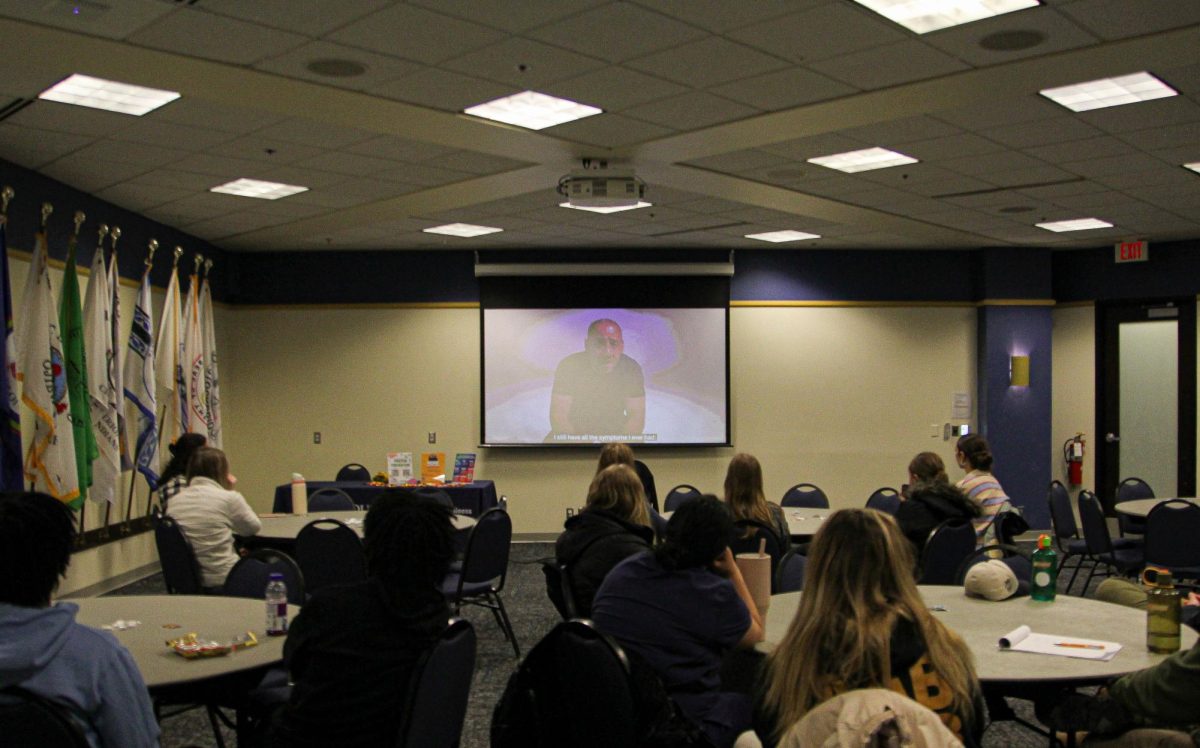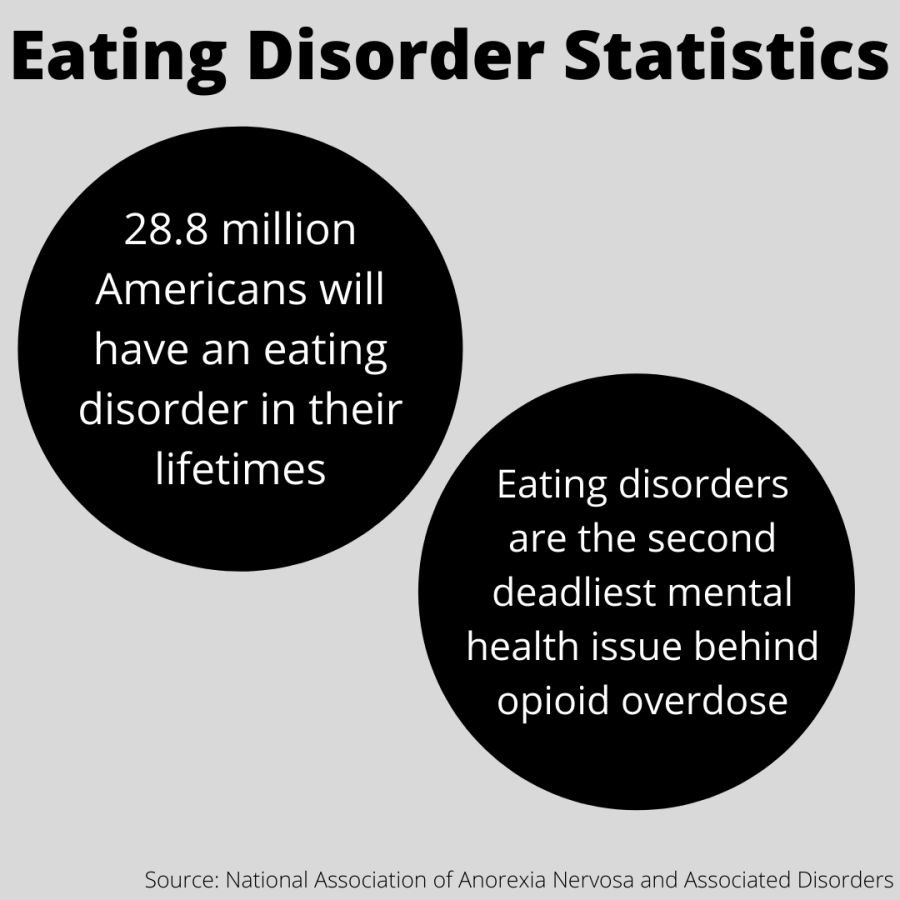Although National Eating Disorder Awareness Week ended Feb. 27 it is essential we continue to be mindful of our language and how we approach people we care about who we think may be struggling with disordered eating. Eating disorders present themselves in many forms, and we may not know who is struggling with them.
According to the Journal of the American Academy of Child and Adolescent Psychiatry, the median age of developing anorexia and bulimia is 18 years old, and the median age of developing binge eating disorder is 21 years old.
When students come to college, they often navigate new avenues of independence for the first time, which can include the freedom to make decisions about what they eat.
With the higher levels of stress that come with a more challenging academic rigor and larger accessibility to food, students may develop disordered eating habits, such as binge eating, eating less or not eating. On the other hand, food may be a comfort for some students as they adapt to living away from family and friends.
We don’t know where people are coming from, or what relationship they have with food, so it’s important that we are mindful of making comments about others’ eating habits.
One study also found that the COVID-19 pandemic has had some impact on people struggling with eating disorders. Of surveyed participants in the sample, 62% of Americans with anorexia reported an “… increased restriction and fears about being able to find foods consistent with their meal plan” and 30% of American participants reported “…increases in their binge-eating episodes and urges to binge.”
Oftentimes weight loss is seen as a positive health step. While weight loss can be a sign of better health, it isn’t also indicative of good health, so it’s important to consider the impact of making comments to someone about their weight loss.
According to the Mayo Clinic, diet is a much better indicator of health than weight loss. Continuing to perpetuate the stigma that thinness equates to overall health could lead to unhealthy diet habits. People who are thin may still have poor health, such as consuming high saturated and trans fats, red and processed meat, sodium and sugary foods.
We all have different body types, so true physical health is going to look different among students.
However, if we are concerned about friends’ health, we need to be compassionate when talking to them because making comments about their weight may intentionally or unintentionally body shame them, as well as be triggering.
The National Eating Disorders Association gives several tips for talking with a loved one about eating disorders. Set a private time and place to talk, stick to the facts such as focusing on behaviors and changes you’ve noticed and rehearse what you want to say. Additionally, NEDA suggests using “I” statements such as “I’ve noticed you aren’t eating with us anymore” or “I am worried about how frequently you’re going to the gym,” as well as removing potential stigmas like letting them know that there is no shame in admitting they struggle with eating.
NEDA also suggests being prepared for a negative reaction, avoiding giving overly simplified solutions such as “just stop” or “just eat” and encouraging them to seek professional help.
The Marquette University Counseling Center also has resources for students who may be struggling with disordered eating, such as providing an outline of what to expect at an appointment to evaluate an eating disorder.
The words we use and the way we approach our loved ones who may be struggling with eating disorders is crucial to creating spaces, showing our support and helping them get the necessary help if they need it. Additionally, we can also stop perpetuating unhealthy stigmas about body image and good health.
Editorial topics by the Marquette Wire are decided at weekly meetings between members of the executive board. The editorial is crafted with leadership by the executive opinions editor. The executive board consists of the executive director of the Wire, managing editor of the Marquette Tribune, managing editor of the Marquette Journal, general manager of MUTV, general manager of MUR and ten additional top editors across the organization.













